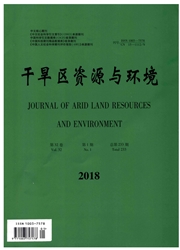

 中文摘要:
中文摘要:
塔里木胡杨自然保护区作为世界原始胡杨生长最好、保存最完整的地方,在研究胡杨对环境约束的适应机制方面提供十分宝贵的资源。胡杨对干旱,盐碱有极强的忍耐力,因此,它作为塔里木胡杨自然保护区的主要保护对象,在保持整个塔里木河流域生态平衡中起到重要的作用。近年来,由于干旱区特殊的环境、地形地貌条件以及人类对水、土地资源的不合理利用导致了地表水资源的减少,地下水位的下降,最终引起了胡杨生态环境的退化。本文以塔里木胡杨自然保护区为例研究分析塔里木河流域胡杨生态系统脆弱性影响因素及其相互作用机制,并提出一些有益的对策和建议。
 英文摘要:
英文摘要:
Populus euphratica, at Tarim Nature Reserve, growing in their natural habitat represents a valuable resource for its elucidating mechanism of acclimation to environmental constraints. P. euphratica is a salt - tolerant tree species growing in saline semi - arid areas and one of the stress - exposed and desert - grown species. Therefore, P. euphratica has been treated as main protecting object and it plays great significant role in maintaining the ecological balance of the Tarim River Basin. P. euphratica Nature Reserve 's eco - environment is getting more and more degenerated due to the harsh climate, topographical conditions, and human irrational use water and land resources in recent years. This research took Tarim Nature Reserve for example and analyzed the ecological frangible factors and their influence mechanisms on P. euphratica eco - system fragility of Tarim Basin and provided some useful protecting strategies.
 同期刊论文项目
同期刊论文项目
 同项目期刊论文
同项目期刊论文
 期刊信息
期刊信息
